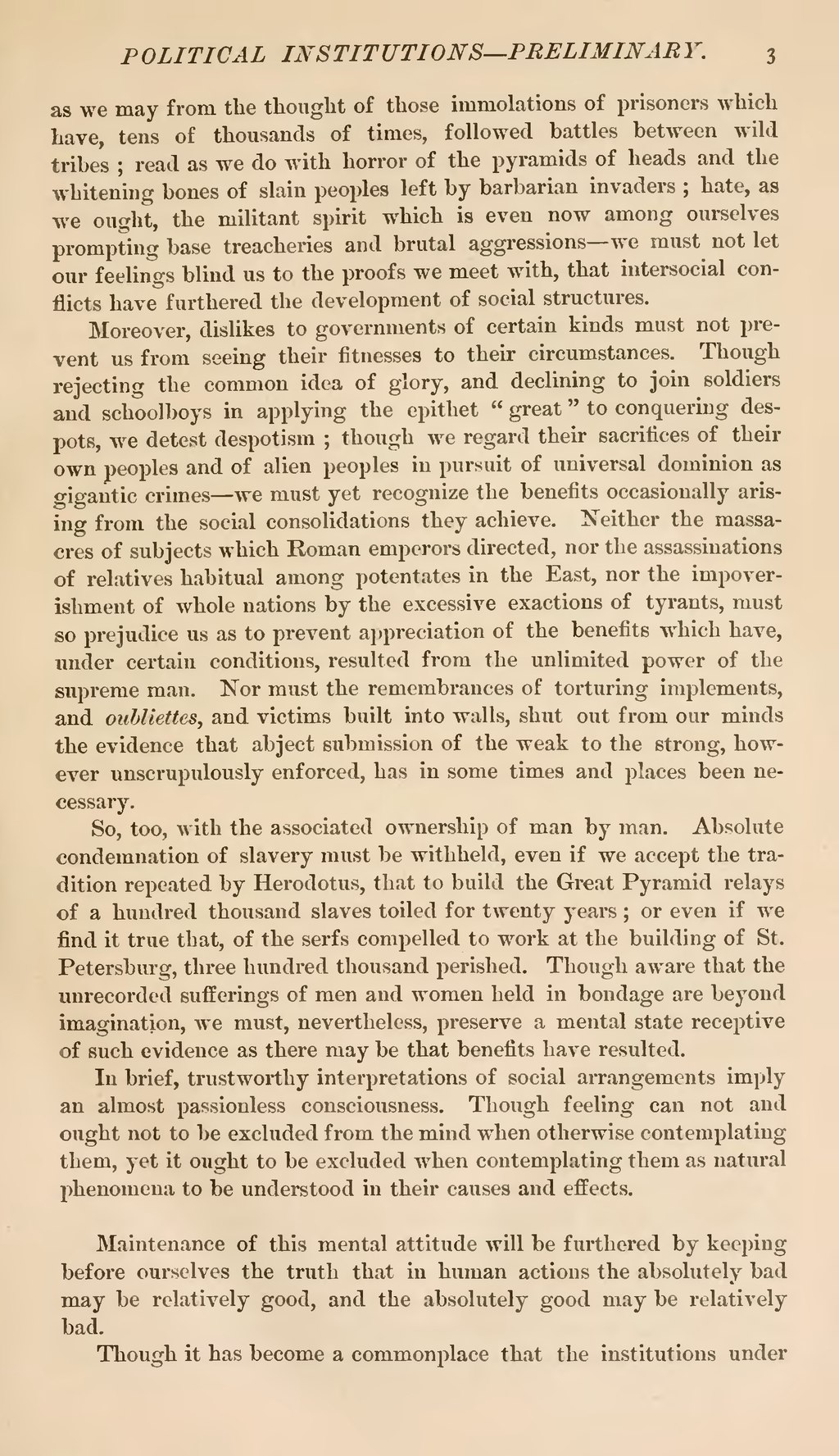as we may from the thought of those immolations of prisoners which have, tens of thousands of times, followed battles between wild tribes; read as we do with horror of the pyramids of heads and the whitening bones of slain peoples left by barbarian invaders; hate, as we ought, the militant spirit which is even now among ourselves prompting base treacheries and brutal aggressions—we must not let our feelings blind us to the proofs we meet with, that intersocial conflicts have furthered the development of social structures.
Moreover, dislikes to governments of certain kinds must not prevent us from seeing their fitnesses to their circumstances. Though rejecting the common idea of glory, and declining to join soldiers and schoolboys in applying the epithet "great" to conquering despots, we detest despotism; though we regard their sacrifices of their own peoples and of alien peoples in pursuit of universal dominion as gigantic crimes—we must yet recognize the benefits occasionally arising from the social consolidations they achieve. Neither the massacres of subjects which Roman emperors directed, nor the assassinations of relatives habitual among potentates in the East, nor the impoverishment of whole nations by the excessive exactions of tyrants, must so prejudice us as to prevent appreciation of the benefits which have, under certain conditions, resulted from the unlimited power of the supreme man. Nor must the remembrances of torturing implements, and oubliettes, and victims built into walls, shut out from our minds the evidence that abject submission of the weak to the strong, however unscrupulously enforced, has in some times and places been necessary.
So, too, with the associated ownership of man by man. Absolute condemnation of slavery must be withheld, even if we accept the tradition repeated by Herodotus, that to build the Great Pyramid relays of a hundred thousand slaves toiled for twenty years; or even if we find it true that, of the serfs compelled to work at the building of St. Petersburg, three hundred thousand perished. Though aware that the unrecorded sufferings of men and women held in bondage are beyond imagination, we must, nevertheless, preserve a mental state receptive of such evidence as there may be that benefits have resulted.
In brief, trustworthy interpretations of social arrangements imply an almost passionless consciousness. Though feeling can not and ought not to be excluded from the mind when otherwise contemplating them, yet it ought to be excluded when contemplating them as natural phenomena to be understood in their causes and effects.
Maintenance of this mental attitude will be furthered by keeping before ourselves the truth that in human actions the absolutely bad may be relatively good, and the absolutely good may be relatively bad.
Though it has become a commonplace that the institutions under
